
The War of Words
In this Adventures in Odyssey drama, a carelessly uttered word from Eugene creates havoc as it becomes the fashionable insult, resulting in a lesson about the power of words.
Home » Episodes » Focus on the Family Broadcast » Nurturing Your Child’s Heart and Mind
Preview:
Sally Clarkson: I think if you admit your mistakes, then they feel free to make mistakes, and tell you about it. But I think if you are, you know, like, you sort of, if you have these rules, and these formulas, and there’s pressure, pressure never motivated anyone.
End of Preview
John Fuller: Well, that’s Sally Clarkson, and she’s our guest today on Focus on the Family. And you’re going to hear more from more about helping your kids develop a love for learning, and for God’s truth as they carry on through life. I’m John Fuller. Thanks for joining us. Our host is Focus president and author Jim Daly.
Jim Daly: And John, we all want our children to develop an authentic faith, and live lives of integrity, and- and do the right thing, you know, to be light in a dark world.
John: Mm-hmm.
Jim: Uh, that’s the goal, but many parents struggle to pass on their values in a meaningful way. And, you know, to be honest, that’s true for me too. I’m always looking for that opportunity. It doesn’t (laughs) always translate though. Uh, but maybe you’re feeling you’re fighting a losing battle, and that’s gonna be, um, I think, a greater challenge, when you feel like you’re under water in passing on those values to your kids. We know your pain, uh, and we want to connect with you at that point of pain, and hopefully give you some great ideas on doing things a little differently to help train your kids, and give them that great foundation of faith and learning. And our guest today is going to, uh, provide some great insights to do that.
John: And Sally Clarkson is a mom of four adult kids, and, uh-
Jim: (laughs)
John: … she’s the co-founder of Whole Heart Ministries. A best-selling author. And, uh, her book that we’re gonna be talking about today is Awaking Wonder: Opening Your Child’s Heart to the Beauty of Learning.
Jim: Sally, welcome back to Focus.
Sally: It’s wonderful to be here with you all.
Jim: Yeah.
Sally: Thank you so much for having me.
Jim: So good to have you. Um, let’s start with, uh, the feeling that many parents have that they’re not equipped-
Sally: Mm-hmm.
Jim: … to teach their kids. “I’ve… I was not trained as a teacher.”
Sally: Mm-hmm.
Jim: “I don’t have that skill set, that ability.” What do you say to that parent?
Sally: Well, I felt the same way. I- I mean, I- I had never changed a diaper. I- I wasn’t one of those girls who babysat all the time (laughs).
Jim: (laughs)
Sally: And I didn’t have my first child until I was almost 31. And so I went into it very idealistically. But, um, I think that what I would love to say, just when, in regards to teaching or whatever, we are all teachers. Um, we all have opinions about how to live life, and what’s the best food, and what color we want. And, you know, and so I would say, if, uh, parents, especially young parents, if they could know that they are equipped, they are fully, they have agency to be able to do what they need to do with their children-
Jim: Yeah.
Sally: And I think it’s a really hard time.
Jim: Yeah.
Sally: But I think they are equipped to kind of know that you have many years to learn.
Jim: Yeah. One of the things that startles me is the survey data that we see. You know-
Sally: Yeah.
Jim: … we keep our eye on most of the family data, social science, et cetera-
Sally: Right.
Jim: … obviously, given what we do. But, uh, parents still hold that seat of the most influential people.
Sally: Oh, totally.
Jim: In not only a child’s life, but a teenager’s life.
Sally: Oh, yeah.
Jim: And I think we grow weary as parents, thinking everything else but us has influence there.
Sally: Mm-hmm.
Jim: But these are the surveys where they’re asking the teens themselves.
Sally: Right. Right, right, right.
Jim: You know, “Who’s the most influential person in your life?”
Sally: Right.
Jim: And a majority of kids will say-
Sally: Right.
Jim: … “My parents.” And so we don’t wanna give up hope in that regard. They still are connected.
John: Mm-hmm.
Sally: Mm-hmm.
Jim: Um, and that’s- that’s important. When you had your first child, uh, y- you didn’t feel that equipped. Um, y-
Sally: Oh, no. I didn’t.
Jim: You had all the fears. Describe that, to connect with those moms that are listening, that are going, “I don’t know if I can do this.”
Sally: I know. Well, it took me a while. But, um-
Jim: (laughs)
Sally: … I have to go back to my life. As a high-schooler I questioned everything I’d ever been taught. I had been raised in the church. But I thought, if somebody really knew the God who threw the stars into place, who- who created the universe, wouldn’t they be more intelligent, more loving, more giving, more whatever. So I came into parenthood thinking, I’m gonna do this differently. Um, I- I want my children to be exposed to in kind of an organic, authentic sort of life. I mean, I’m an idealist off the chart. Just don’t make me wash dishes.
Jim: (laughs)
John: (laughs)
Sally: Um… (laughs)
Jim: Okay, good.
Sally: Yeah. But, um, and so when I held that little baby in my hands, I didn’t know what I was doing, but I had a sense that I was holding eternity in my hands. It was as though-
Jim: Wow.
Sally: … God whispered into my… Literally, I was sitting there thinking. And- and of course, my first baby had to go into intensive care, and- and, you know, we weren’t allowed to have her (laughs). But I kinda had this impression that, wow, God created parents. He trusted us with these little human beings, whose lives will have an impact on their world, and he said, “What will you do to teach them about my love, so when they’re teenagers they’ll believe that I love them?”
Jim: Right.
Sally: I mean, I just had these, you know, mini-thoughts. And so I just would say, “You are exactly the person that your child needs to love them.”
Jim: Yeah.
Sally: And then, “They want you to be their hero. They want you to believe in them.” And that’s-
Jim: Yeah.
Sally: … that’s, you have, you have a lot of grace in that.
Jim: Well, not- not only that. I think there’s a couple of things at work there. I think the Lord allows it this way so that we can better understand our relationship with Him too.
John: Mm-hmm.
Sally: So agree.
Jim: I mean, he’s basically a father of a bunch of teenagers.
Sally: Yeah.
John: (laughs)
Sally: And don’t you keep learning about him the more that you have teenagers? (laughs)
Jim: Right. Uh, and so that idea of grace and love-
Sally: Mm-hmm.
Jim: … and commitment, and all those great qualities that, hopefully, we as Christians are growing in-
Sally: Right.
Jim: … as believers are the same kinda things, obviously, he’s trying to teach us, as we try to teach our children.
Sally: Mm-hmm.
Jim: And of course, they grow up, and hopefully they get married and have babies, and-
Sally: Right.
Jim: … have the whole thing happen to them.
Sally: We hope they’ll want to (laughs).
Jim: Yeah, exactly. One of the concepts in your great book, Awaking Wonder, you mention this idea of mentoring, a mentoring relationship.
Sally: Mm-hmm.
Jim: You just touched on it. I think that’s where I have tried to emphasize my parenting, is, uh, you know, the goal is to launch them.
Sally: Mm-hmm.
Jim: And so the mentoring relationship is really critical. And, you know, some parents, we look at it more like a formulaic approach. If I do A-
Sally: Rules.
Jim: … then B and C, I’ll get D, right? I’ll get D.
Sally: Right.
Jim: Sally, tell me I’ll get D. And boy, that sets you up for disappointment.
Sally: Well, I think that we have to look at people’s real nature. And every single one of us longs to be loved, affirmed, in spite of who we are. You know? I- I mean, I kept, that’s what really brought me to the Lord. I thought, “Will anybody ever love me just as I am, instead of for having to perform in life?” And so I- I really wanna say to parents, no matter what educational system or, you choose, no matter what else you do, the foundation for beginning to influence children is unconditional love.
Jim: And that’s a great goal, again. Um, again, in Awaking Wonder, you make a point about, um, enhancing or enticing a child’s curiosity.
Sally: Mm-hmm.
Jim: Give them that sense of wonder, which is so good. You did that, I think, at least on a particular night, through stargazing.
Sally: (laughs)
Jim: What happened, and was it effective?
Sally: Well, it- it was very effective. Actually, all the kids still talk about it. But, um, I really believe in doing whatever you need to do to garden your heart. And so food was always a part of it.
Jim: (laughs)
John: (laughs)
Sally: In our family feasti-
Jim: People like to eat.
Sally: People like to eat. And so we called it feasting, you know, made it sound important-
Jim: Right.
Sally: … even if it was Cheerios.
Jim: (laughs)
Sally: But, so I made, um, this great, uh, these chocolate brownies, and- and fried chicken, and all their favorite foods. And I said, “We are gonna go out and celebrate tonight.” And we lived up in the mountains, uh, 7,500 feet high. And it was, you know, I thought this would be really fun, and it’s easier than camping, you know, you know, going far away to camp.
Jim: Right. Just go outside.
Sally: Just pull the couches outside (laughs), yeah.
Jim: (laughs)
Sally: And so, um, yeah, but this was kind of our regular life. We had put away vestiges of what people expect of you, and I thought, I wanna have an adventure with my children. I wanna enjoy life. I wanna, you know, dance, so to speak, through life. Put on some Celtic music, um, ate our little heart’s content. And it provided an environment-
Jim: Mm-hmm.
Sally: … um, for us to all enjoy one another. And so we were just out under the stars, and I saw all the different personalities even there. You know, one of them says, “I’m gonna write a poem about this.” And the other one says, “I- I’m gonna…” You know, they- they all had different things they were doing.
Jim: “I’m gonna stack the couches one on top of the other.”
John: (laughs)
Jim: (laughs)
Sally: Yes. Yeah, well, one of them said, “I want all my friends to come.”
Jim: (laughs)
Sally: Um, you know, and, but, uh, it did, it created that moment when we were absolutely awestruck. I mean, it was one of those thank-you-God nights, when, you know, there was a shooting star, and- and, you know, we could see the Milky Way. We lived way out, so it was easy to see the stars.
Jim: Yeah.
Sally: Um, but we tried to create real-life… I think that most of learning happens when you’re washing dishes, when you’re sleeping outside, when you’re driving in the car to Sam’s. And so I think if you develop this mindset of, how can I love them, how can I train them, how can I teach them, how can I affirm, um, all the time, wherever you are, you’re looking for places inside their hearts.
Jim: Yeah. Sometimes that can be difficult when you’re frustrated. And that-
Sally: Oh, of course.
Jim: … that usually is when the ugly side of parenting (laughs) shows up.
Sally: Yeah, but-
Jim: “Because I told you so.”
Sally: I know (laughs).
Jim: That’s one. “Because nothing good happens after night.”
Sally: Mm-hmm.
Jim: I mean, I’ve got all the clichés in my head.
Sally: Well, and-
Jim: But how do you refrain from that, to make sure that you’re in that groove of affirming unconditional love?
Sally: Yeah.
Jim: I think we love the idea of unconditional love. I just don’t know that we can always deliver it.
John: Yeah.
Sally: We can. And I think a part of you modeling Christ to your children is to apologize. Um, one of my-
Jim: Amen.
Sally: … kids came up to me one time and said, “You know, mom, I think it would be really great if you could catch yourself before you pop.”
Jim: (laughs)
John: (laughs)
Jim: That was great.
John: (laughs)
Jim: Oh, that’s good.
Sally: You know, ’cause I- I would, y- you know, I would, I was really nice and gentle and gracious.
Jim: Yeah.
Sally: And then all of a sudden I would get to the point where it would… You know?
Jim: They start saying to each other, “Run.”
Sally: Yeah, really.
Jim: “Mom’s gonna pop.”
Sally: And she said, “‘Cause I know it always makes you feel guilty.”
Jim: (laughs)
Sally: And of course, it did. And then I would say, “You know what? I am human too. And you are human. And if you pop, I’m still gonna love you, if you love me.” You know, I mean, you have to be authentic. And then they… I think if you admit your mistakes, then they feel free to make mistakes and tell you about it.
Jim: Yeah.
Sally: But I think if you are… You know, like you said. If you have these rules and these formulas, and it’s pressure, pressure never motivated anyone, and it never captured their heart. And I really believe that guilt is a poison. If- if you’re always passing on guilt to your children, “You never do this, you didn’t do that,” I think it poisons them. And, um, so, you know, I had to learn along the way, there are some things, if you think you’re gonna get angry, go outside, go to the coffee shop, go… (laughs) You know? Um-
Jim: Pop somewhere else (laughs).
John: (laughs) I love that.
Sally: Yeah. Well, I would even, I would throw all my children in the car, and we would go for a long drive in the mountains, and I would put some fun thing on the tape, and- and I would get a good little drink for myself, and then we would cool down. Or I would go to a park, or, you know, I would… But I wou- I always knew to plan ahead of time for moments when I thought this has been too much.
Jim: Yeah, that’s good. That’s why we created adventures in odyssey (laughs).
John: (laughs) Predict that moment.
Sally: Yes. Yeah, there you go. Oh, thank you for those, yes (laughs).
Jim: That’s the secret of the, uh, success of that.
Sally: The children memorize it (laughs).
Jim: Let me, uh, let me ask you about this. Uh, you home-schooled your kids.
Sally: Mm-hmm.
Jim: And that’s great, and right now there’s a surge-
John: Yeah.
Jim: … in home-schooling.
Sally: Right.
Jim: Because of the pandemic, et cetera. But, um, the key there is you cultivated this love of reading-
Sally: Uh-huh.
Jim: … in your children. I guess there’s a two-part question in my mind, only having boys-
Sally: Uh-huh.
Jim: … in my case. Uh, you know, reading has never been something that they just naturally gravitated toward. Thankfully, uh, one of my boys is a good reader, and the other one likes, uh, manuals.
Sally: Right, right.
Jim: He’s more mechanical.
Sally: Right.
Jim: Uh, but h- how did you get your children, uh, to enjoy reading, and to love learning, I guess?
Sally: You know, um, you have to read the book, for one thing. ‘Cause I-
Jim: (laughs)
Sally: Uh, what happened is we- we wrote a 380-page manual many, many years ago, and then people started following our children’s arenas. ‘Cause they’re all writers. You know, some people farm, and some people write. Um, and so they said, “Would you please write what did you do, because I see they are all passionate about life, and they- they love learning.” None of them perfect. They don’t always pick up their socks or their coffee cups. Um, but I think I grew up not wanting to conform. I’m kind of a dreamer, adventurer. I talk too much, and always got in trouble for it in school. So I wanted to provide an environment where my children could kinda flourish. And so we didn’t do a lot of ritualistic things. But every morning, whether they were eating, you know, Cheerios or popcorn, or drawing, or doing whatever, I would say, “I’ve got the best story for you today.” And then we would-
Jim: (laughs)
Sally: … we would enter into these stories. It was the first thing we’d do. You always do the first thing first, before everybody has time to get exhausted. And so, um, we started out when they were really little, saying, “I think there’s a hero inside your heart. Listen to this hero today. You won’t believe what he did.” And so we based most of our education on reading, thinking, talking. We… I had this book called A Life-Giving Table, where every night anything was okay to talk about. And we would bring up crazy subjects, especially in their teen years. And, um, but we’d ply them with food. And so we did a lot of reading, talking and eating.
Jim: Yeah.
Sally: Um, and I know that sounds funny. But we also… And many people are going to panic from this, but you have to read the book. We never, uh, tested them or gave them grades. We did, um, state testing when we had to. You know, at- at first we lived in states where we had to. But after they started flourishing-
Jim: Yeah, it’s not necessary.
Sally: … and experimenting, creating things, building a million Lego houses, you know-
Jim: (laughs)
Sally: … doing all these fun things, um, they thought that education was math, because they had to work harder to- to do math. But I do think that all of us kind of have this desire to be set free to live into, um, a little bit bigger life, a transcendent God, enjoying life, celebrating life, enjoying relationships.
Jim: Yeah. And I… You know, we did a broadcast with you and your son Nathan about some of the difficulties. Because Nathan had some- some difficulties.
Sally: Issues, yes.
Jim: Um-
Sally: He’s out of the… As- as, um, Different, the story of the out-of-the-box kid.
Jim: Yeah, so describe that-
Sally: He was the out-of-the-box kid.
Jim: … for that parent that maybe, uh, you know, encountering that same challenge.
Sally: Yeah.
Jim: Uh, what happened? What was Nathan’s issue? How did you overcome that together?
Sally: Yeah, I think that I would just tell so many parents, don’t worry so much. Because, um, Nathan could never… Two plus two was never four, no matter what, you know?
Jim: Right.
Sally: And so I thought, will he ever be able to have a job? Will he ever be able to do anything? (laughs) Um, two plus two eventually became four when needed money. Um-
Jim: (laughs)
John: (laughs)
Sally: (laughs) So, um-
Jim: It always comes down to that.
Sally: Yeah, but I think that kids develop at different times, and he- he, uh, was ADHD, ODD, OCD.
Jim: Wow.
Sally: Had a little bit of dyslexia.
Jim: Yeah.
Sally: And so I just learned that I, if I read hero tales… From the time he was seven he wanted to be superman. He couldn’t sit still and read. But I would do Odyssey. I would do these fun stories online, and I would read to him all these different things. I would scratch his back. If I scratched his back (laughs), you know, every child is different, while I said, “We’re gonna do math today. Tell me what two plus two is,” you know… Um-
Jim: Yeah (laughs).
Sally: He really responded to time, which parents don’t feel like they have enough of. And one time he even said to me, “Mama, when you spend time with me I feel like I wanna obey you, and do what you want me to do. But if you neglect to spend time with me and talk to me, I’ll do whatever I have to do to get attention.”
John: Mm-hmm.
Jim: There’s a dagger for our hearts.
Sally: Yeah, I know (laughs).
John: Yeah, some really insightful stuff from Sally Clarkson today on Focus on the Family. And we’re talking about her book, Awaking Wonder: Opening Your Child’s Heart to the Beauty of Learning. And, uh, Sally’s influenced our family in a significant way, and she can influence yours beyond the broadcast. Get the book. Uh, we have it at focusonthefamily.com/broadcast.
Jim: Sally, uh, nurturing your child, in my mind, is probably the most critical.
Sally: Mm-hmm.
Jim: To have that nurturing heart toward your child. Because that’s- that’s kind of the key, right?
Sally: Right.
Jim: They need to feel loved. They need to create an identity, hopefully in Christ.
Sally: Right.
Jim: And you’re gonna pave the way for that.
Sally: Mm-hmm.
Jim: You’re gonna show them the way. Um, your daughter, I think Joy went through some really difficult times there about 12 years old. What was going on, and how did that challenge you as a parent?
Sally: I would say that most children, when they go into their teenage years, shift. And they’re shifting from being a child to eventually owning their own muscle.
Jim: (laughs)
Sally: But it’s a process. You know, they don’t become mature right away. They’re hormonal. They’re emotional. And really, it ends up that Joy was actually one of the easier ones. My boys, um, both went through different things. But I think if parents can know that that’s the time, the teenage years, um, middle years, you know, they’re, they wanna be liked, and- and- and they’re moving from daddy and mommy to an adult world. And I would say, if I didn’t anything else to everybody, your children are going into an R-rated world. Um, it is not-
Jim: Mm-hmm.
Sally: … a G-rated world. It is a difficult world. It is much more important to care about who they are, their faith, preparing them to stand strong, than it is about their SAT scores. And so I feel like what I learned then is the teenage years was when they didn’t wanna be in a group anymore. They wanted individual attention. So, like with Nathan, Nathan, because he was, um, you know, he’s a guy, and he was OCD, and all these other things, he would, I would say, “Okay, let’s go out for breakfast, buddy.” And- and he would go from zero to 75 in two seconds. You know, I’m holding on with all my life. Um, whereas Joy wanted to go to a coffee shop downtown and have brunch. Um, you know?
Jim: And talk deeply.
Sally: Yeah. And so I feel like, y- it’s almost like you have to earn the right to speak what you wanna tell them. But never, never, never give up. Because they may look at you with… Um, you know, and they swirl their eyes. They may throw things or slam doors. And that’s an expression of what they’re feeling with, they’re feeling inside. Because the world is kinda frustrating, and usually our- our ideals and our morals are higher than most people. As my, as Joy says recently, she said, “Mom, it seems like the bar is really low.”
John: Yeah, it’s true.
Sally: And so, um, when we set the bar higher, and when we say, “I just really want the best for you,” we have to know that we’re gonna get pushback.
John: Yeah.
Jim: Uh, let me ask you about, um, the core message that we talked about at the beginning, which is how do we help our children develop character and virtue.
Sally: Mm-hmm.
Jim: What are some of those practical ways? I mean, I think you’re expressing it in physical touch-
Sally: Mm-hmm.
Jim: … and time together. What are some other ways that are practical to get them on that character virtue highway?
Sally: Yeah.
John: Mm-hmm.
Sally: We did… We- we wrote a- a- a 24 family ways about that, to helping our… We had a vocabulary with our children of what it was like to live in a, um, in a godly way. But I think for us, we began to realize that, um, you talk about loving people, and then when you’re at the grocery store, and you have a chance to be gracious, you choose to be gracious in front of your children. Or, um, you see somebody who’s homeless and you say, “I wonder if they want a McDonald’s hamburger?” And so we’d take our children over. They bought the hamburger, gave it to the guy. And they went, “You know, it felt good to help him.” And so unfortunately, or fortunately, as it is, it requires a lot of time-
Jim: And thought.
Sally: … and thought and creativity, to shape those things. We would host people in our house, and we would say, “Um, would you ask a question? ‘Cause I think they would love for you to be interested in them.” Or, uh, you know, we would, we went on, uh, projects where the kids would work with us. And so I think that character is both learned through training and- and teaching, but it’s also learned in the way that you treat people, and the way that you tell the truth, and the way that you work hard. And I feel like having children helped me grow up.
Jim: Yeah.
Sally: You know, because I wasn’t as mature as I am now, because they required that I grow to be mature.
Jim: Yeah. Sally, let me ask you this. Um, I think like marriage, we have the same kind of expectations of parenting.
Sally: Right.
Jim: And what I mean i- in terms of that analogy is we have an expectation of marriage, what it’ll be like. And before, you know, a couple years go by, maybe that expectation isn’t met.
Sally: Right.
Jim: Your husband’s not putting his dirty clothes in hamper.
Sally: (laughs)
Jim: I mean, whatever it might be.
Sally: Yeah.
Jim: It’s a whole host of things. But you begin to, you know, roll with it, correct it, whatever you’re gonna do to try to get that relationship where you want it. In the parenting realm it’s similar.
Sally: It’s so similar.
Jim: Uh, you hold this little one, and you take, I don’t know, 10,000, 20,000 pictures-
John: (laughs)
Sally: (laughs)
Jim: … of this child, and ooh and google. I was just telling Troy the other day how he used to… I think it was third day I would listen to it, and I would dance around the house with him in my arms. And, uh, you know, he would laugh-
Sally: Very sweet. Yeah.
Jim: … and say, “You try that now, dad.” (laughs)
John: (laughs)
Sally: Yeah, really. (laughs)
Jim: It may be a little more difficult. But the- the point of it is, um, parental expectations get dashed.
Sally: Right.
Jim: And they come in all forms.
Sally: Right.
Jim: Uh, if you were an athlete dad, and your boys didn’t play sports.
Sally: Exactly.
Jim: And maybe academically they’re not where you want them to be.
Sally: Right.
Jim: Whatever it might be.
Sally: Mm-hmm.
Jim: Um, socially, whatever. Um, how do you as a parent right those expectations, or create a healthier relationship where you trust God-
Sally: Yeah.
Jim: … you don’t have expectations in that way, and you trust God to carry your child forward?
Sally: I think that’s so true. I- I wish I could tell every parent, number one, relax, it’s a long journey. And they’re gonna be, they are gonna grow. You know, I get all sorts of letters from people with five, two and one-year-olds. And they’re not gonna speak Greek at that age.
Jim: (laughs)
John: (laughs)
Sally: (laughs) You know, I feel like that-
John: And think of them at 30. That’s the point.
Jim: Yeah (laughs).
Sally: Yeah. I think God sees us as toddlers.
Jim: Yeah, definitely.
Sally: And he’s not surprised that we’re immature, and he’s not surprised that we scream once in a while. And, um, so I would say, first of all, just relax. You’re the parent that your child needs. The second thing, um, I would say, is don’t listen to the voices. There is so much advice, and there’s so much on the internet that says your child should be, you know, doing this by five, and your child should be doing this by two. And I- I think, no they shouldn’t. Every child has unique, uh, fingerprints, unique DNA. Just roll with it. And, um, I think that the more you can decide to enjoy, and- and to look at your say, life and say, “This is my puzzle. I am perfectly capable of putting the pieces together for my family. And it doesn’t have to look like yours, and my children are not here to perform for me or make me feel good.” And, um-
Jim: That’s a great point.
Sally: … I think that once I feel in love with them, and just decided… I kind of blew off all the false expectations I’d had, and I thought, you know, I really believe that God says it’s good a- His will is good and acceptable and perfect. I believe this is a good and acceptable and perfect place for me to be able to thrive. And I’m- I’m determined that I’m gonna learn how to enjoy it.
Jim: Yeah. Let me, uh, in the wrap-up here, let me just say, uh, business books, Christian business books-
Sally: Mm-hmm.
Jim: … talk about the active worship in your vocation.
Sally: Mm-hmm.
Jim: And it’s something we all agree to, you know?
Sally: I agree, yeah.
Jim: And we love that. What we don’t hear very often, and what you expressed in your book, is the idea that parenting-
Sally: Mm-hmm.
Jim: … is also an act of worship. And may I say, probably a higher act of worship-
Sally: Yes.
Jim: … than what you do vocationally. It’s kind of the job.
Sally: Yeah.
Jim: And, uh, I like that context.
Sally: It’s the passing on of faith from one generation to the other, you know?
Jim: Yeah, seeing your parenting as an act of worship-
Sally: Mm-hmm.
Jim: … that just puts it in a different place.
Sally: Well, I realized, and this had helped my marriage too, that I wasn’t supposed to love and serve and honor and be friends with Clay because of him, because he deserved it. I had told God, “Okay, God. I am here. I’m your girl. I’m gonna serve you and love you.” And he said, “Well, then, will you love him?” And then he said, “Will you love your children? Because how you treat your children is how you’re accepting the gift that I’ve given you, four little human beings whose lives will last for eternity.” And so I, it helped me to say, it’s not whether they deserve it or not. It’s does God deserve my heart of love, does God deserve my heart of worship?
Jim: Wow. There’s a mic drop.
Sally: (laughs)
John: (laughs)
Jim: Way to, way to end the program. A boom.
Sally: Uh-
Jim: No, it’s really good. Sally, this has been awesome. And your wonderful book, Awaking Wonder, uh, what a tool.
Sally: Mm-hmm.
Jim: And filled with practical advice to help parents, uh, kinda ease their heart.
Sally: Oh, yeah.
Jim: And encourage them to, y- you know, be intentional about passing on their faith, which I don’t know a Christian parent that doesn’t want that to be job number one.
Sally: Of course, right.
Jim: I would relax on the behavioral modification.
Sally: Yeah, yeah.
Jim: Just, I think calm, loving parents create calm, loving children.
Sally: It-
Jim: And there is a bit of a formula to that. But, uh, thank you so much for being with us today.
Sally: Oh, thanks, again, for having me. I- I so enjoy being with you all.
Jim: Yeah, appreciate it.
John: And again, uh, the book that Sally has written, Awaking Wonder: Opening Your Child’s Heart to the Beauty of Learning. Great resource. Uh, get a copy from us here at Focus on the Family. Uh, our number is 800-A-FAMILY, or click the link in the episode notes. Or stop by focusonthefamily.com/broadcast.
Jim: And John, as we often do, if you can partner with us in ministry, uh, send a gift of any amount, and we’ll send you the book as our way of saying thank you. It’s fun to- to do this. Let’s save some marriages. Let’s save some parents some pain in their parenting, and do it all in the name of Christ. Stand with us. Um, have fun being a part of a ministry that’s impacting literally hundreds of thousands of people, because of God’s grace.
John: Yeah.
Jim: Uh, can you do that? And in doing that, again, we’ll send you the book as our way of saying thank you.
John: Donate and get your copy of Awaking Wonder when you get in touch. And also, I might mention, we have, uh, a free Seven Traits of Effective Parenting assessment. Uh, it takes a few minutes for you to fill out, and it’ll give you some insights into, uh, some strengths in your parenting approach, and maybe some ways you as a mom or a dad can grow. Uh, that free resource, that free assessment is online, and, uh, we’ll have the link to that, to Sally’s book, and to opportunities for you to donate as well. It’s all at focusonthefamily.com/broadcast. And once again, our number, 800, the letter A, and the word FAMILY. Well, coming up next time here on the broadcast, the heartbreak of drug abuse in the family.
Preview:
Mac Owen: Well, you know, we hear people, especially in Colorado now, say that marijuana is not a gateway drug. And that’s fine if people wanna believe that, but for me it was. And everybody that I ever knew that was on meth started with marijuana.
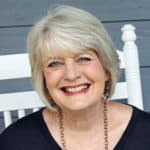
Sally Clarkson is a best-selling author of more than a dozen books including The Lifegiving Home, Own Your Life and The Mission of Motherhood. She is also a public speaker, a blogger and the co-founder, along with her husband, Clay, of Whole Heart Ministries, an organization dedicated to encouraging, equipping and enabling Christian parents to raise wholehearted children for Christ. Sally and Clay have four children and reside in Colorado. Learn more about Sally by visiting her website, www.sallyclarkson.com.
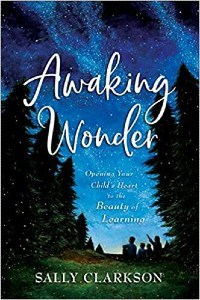
Receive Sally Clarkson's book Awaking Wonder for your donation of any amount!
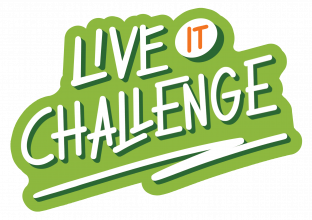
Live It Challenges help families to live out their faith, build lasting biblical habits, and strengthen their relationship with Jesus Christ.

Visit our online store and purchase a CD of today's program for yourself or to share with a friend.
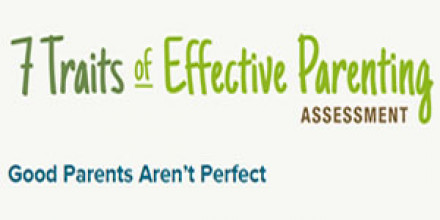
There's no parenting formula to follow, but there are ways you can grow every day. This assessment gives parents an honest look at their unique strengths, plus some areas that could use a little help.

Visit Adventures in Odyssey's official website where your family can listen to episodes of our highly popular children's series, learn all about it, and enjoy bonus content.

What does it take to help our children become active learners? Let's look at five ways to help them 'learn how to learn.'

In today's culture, reading is one way to help your kids attain more academically. Here are some ideas to create a culture of reading in your home.
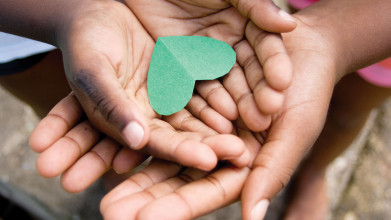
Humility is one of the most desperately needed character traits. How can we develop this trait in our children? The first step is helping them have an understanding of what real humility is.

Are your kids ready for the real world? What are the basics that you'd like your children to know before they left home?

Greta Eskridge inspires parents to get their kids outside their daily routines and experience the thrill of adventure as a family.

In this Adventures in Odyssey drama, a carelessly uttered word from Eugene creates havoc as it becomes the fashionable insult, resulting in a lesson about the power of words.

This discussion offers a preview of Volume #16 “Cultures in Conflict” from the That The World May Know video series, available below.

Debra Fileta will help couples better understand the four seasons of healthy relationships, what to expect during each one, and how to carefully navigate them for a stronger marriage. (Part 1 of 2)

Larnelle Harris shares stories about how God redeemed the dysfunctional past of his parents, the many African-American teachers who sacrificed their time and energy to give young men like himself a better future, and how his faithfulness to godly principles gave him greater opportunities and career success than anything else.

Amy Carroll shares how her perfectionism led to her being discontent in her marriage for over a decade, how she learned to find value in who Christ is, not in what she does, and practical ways everyone can accept the messiness of marriage and of life.

Psychologist Dr. Kelly Flanagan discusses the origins of shame, the search for self-worth in all the wrong places, and the importance of extending grace to ourselves. He also explains how parents can help their kids find their own sense of self-worth, belonging and purpose.